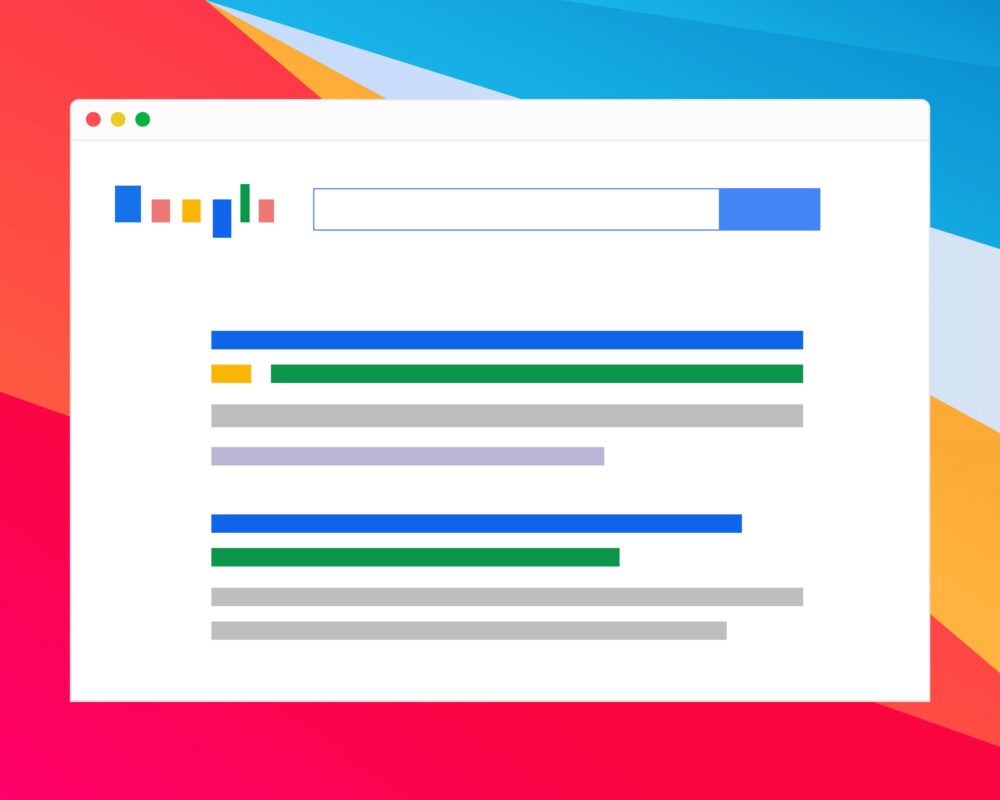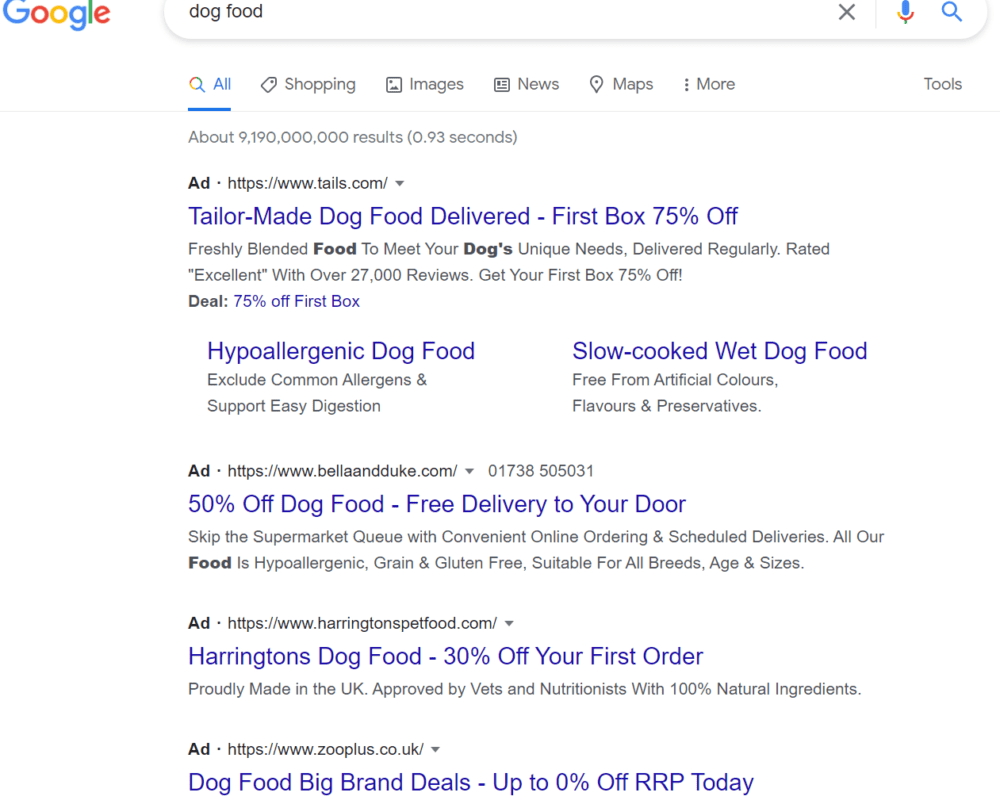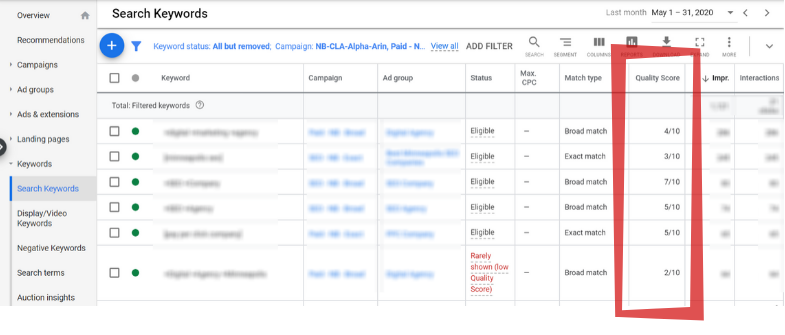Get ready for a blog post filled with acronyms!
Pay Per Click (PPC) advertising is one of the best ways to quickly make your website visible to your target audience.
When you search something on Google (other search engines are available!), the first few results you see on the Search Engine Results Page (SERP) will be ads. After these, you have what are known as the organic results.
PPC advertising involves getting your website onto one of those ad listings right at the top of the SERP. As you can tell by the name, you will have to pay Google for every ad of yours that gets clicked on.
The cost for these ads can vary wildly, with highly competitive industries driving up the average cost per click (CPC).
But when you compare this cost to the potential profit you can make from a sale, known as cost per conversion (CPCon – we did warn you!), it’s usually well worth it.
While Search Engine Optimisation (SEO) may be ‘free’, it can take months and months before you start to see real progress. During this time, an investment into PPC can be extremely worthwhile.
Read on for more information on PPC from one of the top PPC marketing Liverpool companies (if we do say so ourselves), Blaze Media.

How do Google Ads work?
To give you a brief overview, Google have a massive list of keywords that people can bid on. When someone uses one of these keywords in their Google search, Google holds an auction to decide what website shows up in the ad spots and in what order.
Simple? Probably not. The best way to explain this might be with an example. So let’s start with a little bit of roleplay!
Let’s say you own a dog food company. You can imagine your own name if you want to, I won’t stifle your creativity.
If you want your website to show up when people search for ‘dog food’ then you’re going to want to bid on that keyword. If you’re one of the top bidders for that keyword, then congratulations! You’ll appear in one of the ad slots on the SERP. Take a look at the below image to see this in action.

Ad rank calculation
Google doesn’t just use the monetary value of your bid to decide if you show up. They have a figure known as ‘ad rank’ that’s decided by an equation that looks like this:
Ad rank = CPC bid x quality score
We’ll discuss quality score in more detail soon. For now, let’s finish talking about dog food.
In the example above, Tails won the bid by having the highest ad rank so they appear first.
Every time someone clicks on Tails’ website, Tails have to pay Google an amount based on their maximum bid. Believe it or not, there’s another formula for this:
Price = ad rank of the website below yours / your quality score + £0.01
And that’s more or less the basics of how Google Ads work. If you’re still following us then good on you but I apologise because things are only going to get more complicated!
What is quality score?
A bid is easy to grasp because it’s a tangible amount that you can set yourself. Quality score, on the other hand, is just an amalgamation of other factors that are decided for you. Don’t sleep on it though because a good quality score can be the key to winning bids for as low a price as possible.
Your quality score is an important metric in both the formula for determining your ad rank as well as the formula determining your final CPC. The higher your score, the higher your ad rank will be, and the lower your CPC will be.
Quality score is always between 1 and 10, with 10 being the highest and therefore the best score you should aim towards – this is very hard and won’t always be attainable so don’t worry if your score is lower than this.

It’s made up of the relevance of your keyword to the search query, your landing page quality and the relevance of your ad text (the little bio paragraph below the website URL on the SERP). The most important metric to determining your quality score though is your Click Through Rate (CTR).
CTR just means the number of times your ad has been clicked on compared to the number of people who have seen it.
There aren’t really any shortcuts to improving your quality score. It will improve organically overtime the more that people see and click on your ad. If you want to get a head start on this though then you need to try and improve your CTR.
The cool thing about doing this is that you’ll almost definitely improve your Google Ads conversion rate because you’ll be improving the quality of your ad by optimising it for intent.
Let’s go back to the dog food example. If you sold exclusively raw dog food on your website and you were bidding on ‘dog food’, this probably isn’t ideal because of all the other types of dog food on the market. ‘Raw dog food’, which is a much more specific keyword for your business, is so much more valuable and is of a higher search intent, so you’ll likely only appear for people who are looking to buy what you’re selling.

Brief Quality Score Recap
That really was a lot, wasn’t it? Let’s take a breath and have a recap on what we know so far.
- A higher ad rank gets your ad in the pole positions.
- Ad rank is made up of your maximum bid and your quality score.
- Quality score is made up of your CTR and your overall relevance to the searcher.
- A high quality score = higher ad rank and lower CPC.
Now let’s talk about how careful planning can save you money.
The importance of a Google Ads budget
Working out your PPC budget is difficult but should be based on the money you have at your disposal and what your PPC goals are. This is just an example so the figures will vary in real life, but if you want to get 100 new visitors to your website a day and your CPC is £0.50, then your daily PPC budget will be £50.00.
When you choose the amount of your bid, what you’re choosing is the maximum bid that you’d be willing to pay. Google will always charge you the lowest amount that they can to get you in the highest position.
It may seem like whoever bids the highest is going to win the most bids. While logically this does make sense, quality score throws a real spanner into the works for big budget businesses.
Smaller businesses can get away with bidding a lower CPC amount if their quality score is high enough to make up for this.
Let’s return to your dog food business. If your CPC was £2.00 and you have an outstanding quality score of 10, then your ad rank will be 20.
If there’s a bigger business out there that can afford to pay £18.00 per click but they have a terrible quality score of 1, then their ad rank will be 18. You win! Your website will be top of the ad positions with the bigger business below you.
To work out how much you will be paying per click in this example you need to remember this formula:
Ad rank of the website below yours / your quality score + £0.01 = price
We know that the big dog food business that is directly below yours had an ad rank of 18, your website has a quality score of 10, and your maximum CPC bid is £2.00. For your website to rank in 1st place, you just have to beat the ad rank score of 18. Let’s fill these figures into the formula:
18 / 10 + £0.01 = £1.81.
You will be paying Google £1.81 per click. This isn’t even your maximum bid of £2.00!
Remember though that the amount of clicks you receive can be unpredictable. If you have a weekly budget of £90.00 then your budget will be rinsed after just 49 clicks. This is why it’s important to set your maximum bid at a rate that your budget can maintain to meet your businesses PPC goals.

Should I use a PPC agency?
If the time spent for you to organise your PPC campaign, including doing lengthy and continuous tasks like keyword research, split testing adverts for best performance and optimising on page content, could be better spent doing other things for your business, then consider working with a dedicated PPC agency.
Adzooma put together this average marketing agency cost guide and they say, the average cost for an agency doing PPC work in 2020 was £725 per day, or a monthly retainer of £1040.90 which consists of 1-3 days of work per month. Although these costs will vary depending on agency size and location.
Some agencies adopt a % model instead. Either they will take a complete % cut, or they will operate on a monthly retainer basis unless you go over a certain ad spend and then they will take, say, 10% of everything above that.
Here at Blaze Media, we have an expert PPC team that can work with you to get you the best results for your business regardless of your ad budget. Get in touch with us now to get started on your PPC journey.


